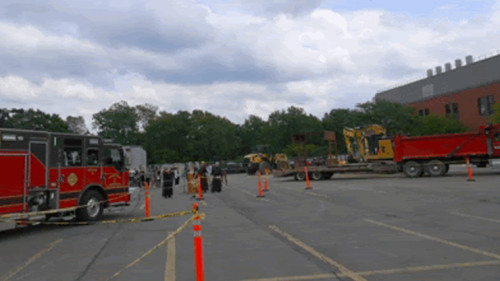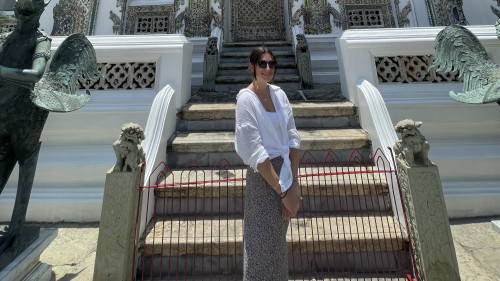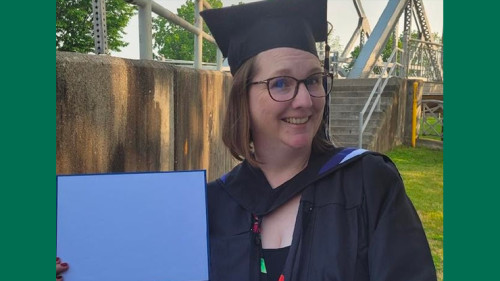
When the campus shut down in March, not every living thing could go home, so a cadre of students stepped up to handle the care and feeding of Siena’s research animals and office plants, and they have been keeping it up all the summer.
Siena’s lab animals – reptiles, fish, insects, birds and more – are studied by science students in Animal Physiology, Invertebrate Biology and other courses and research projects. For a college to have lab animals available, the population has to be maintained year-round, according to Rebecca Clark, Ph.D., assistant professor of biology.
“We can’t just order animals,” said Clark “They are gathered from designated places using special permits and our collection has to be properly and humanely maintained.”
There are strict state and institutional regulations about keeping lab animals in captivity. It’s not just food and water that need to be provided: temperature control, lighting, ventilation, cleaning, plus general monitoring of their well-being are all on the daily care checklist.
Clark explained that some reptiles bask in the sun, so lights are set up for them to replicate their habitat. A colony of leaf cutter ants couldn’t grow properly at room temperature, so they’re kept above 83 degrees so they feel like they’re back in Arizona.
One creature does double duty in the lab – crickets. They are studied as an insect species, and they are also the main course for some of the reptiles like geckos, skinks and plated lizards. Siena gets regular shipments of them and also raises its own supply from eggs.
Alyssa Ciccarelli ’22 has been on lab animal duty in Morrell since May 2019. She already had five years of experience with creature care working at the East Greenbush Animal Hospital when she saw a notice posted by Christopher Harbison, Ph.D., associate professor of biology, looking for students to help in Morrell. Used to tending to dog and cats, she noted that the ad for student workers didn’t specify what kinds of animals she’d be caring for at Siena.
“It was an adjustment at first working with reptiles and birds!” she said. “But I got used to them. The pigeons each have their own personality, and I came to see that the lizards have their own personalities as well.”
Coming on to an almost-empty campus a couple times a week was another adjustment.
“Initially, it was really, really weird coming to Siena with no one here,” she said. “But I actually kind of liked being here when no one else was around.”
She noted the items that faculty and students left behind when they departed campus right before spring break – texts, notebooks and supplies left ready with the hopeful expectation that they would be returned to use after break.
Ryann Augstell ’21 and Kristina Goudreau ’22 have also been on the care and feeding team.
“The animal care position sounded like a nice way to be involved on campus, and I love animals, so I figured I’d also get the chance to give back a bit,” said Augstell. “I’ve been helping take care of the animals since May and I love getting to interact with them!”
Clark said the science faculty are looking forward to resuming their research when the campus reopens this month – Siena professors are committed to working with their students on research and are keeping projects at the ready for the start of the fall semester.
In Harbison’s lab, they examine the co-evolution of hosts and parasites using pigeons and feather-feeding parasites as a model system.
“The pigeons were obtained from local horse farms where they were interfering with their operations,” he said. “They graciously allowed us to capture these birds rather than call an exterminator. The birds are very well cared for by our dedicated animal care staff and are released back into the wild after a few years of contributing to science.”
It isn’t just the fauna that need looking after – the flora need love as well. Jenn Collazo ’21 is a full-time Public Safety officer at Siena in addition to her studies. Knowing she’d be patrolling campus during the shutdown, her social work professors asked if she could tend to the huge array of plants in the Social Work department suite in Rosetti Hall while she was on duty.
Collazo is good at raising boys – she’s a mom to two young sons – but she had never taken care of plants before. She created a system where she put sticky notes on the different pots to remind her which ones needed water and sun on which days.
“That room is our safe space for all of us in social work – we love those plants! They’re all still alive, thank God.”

